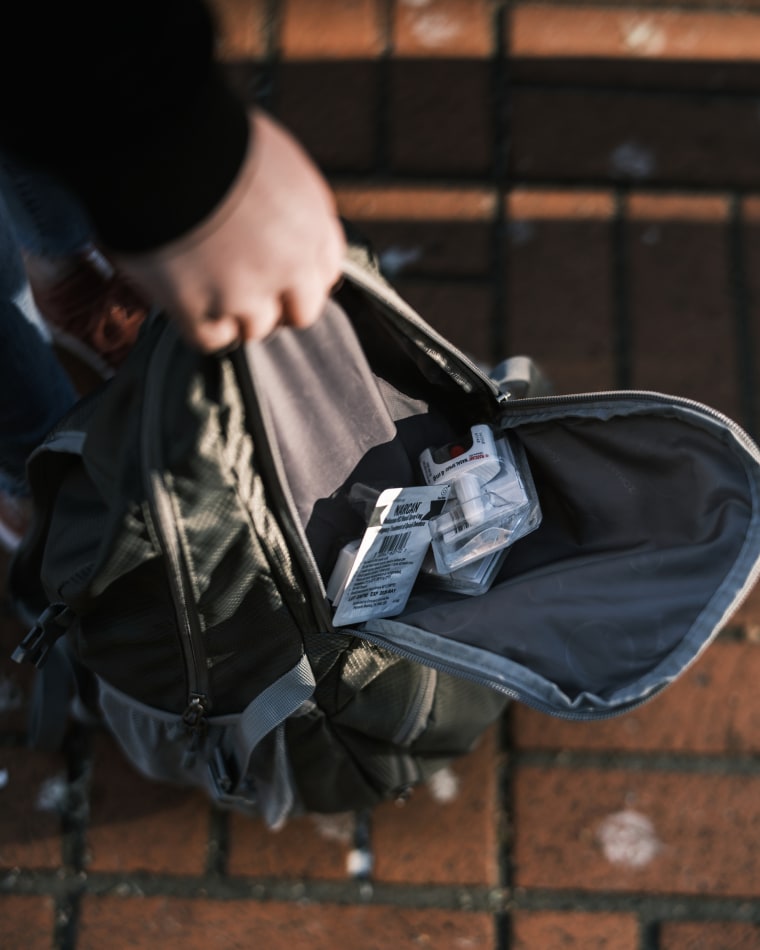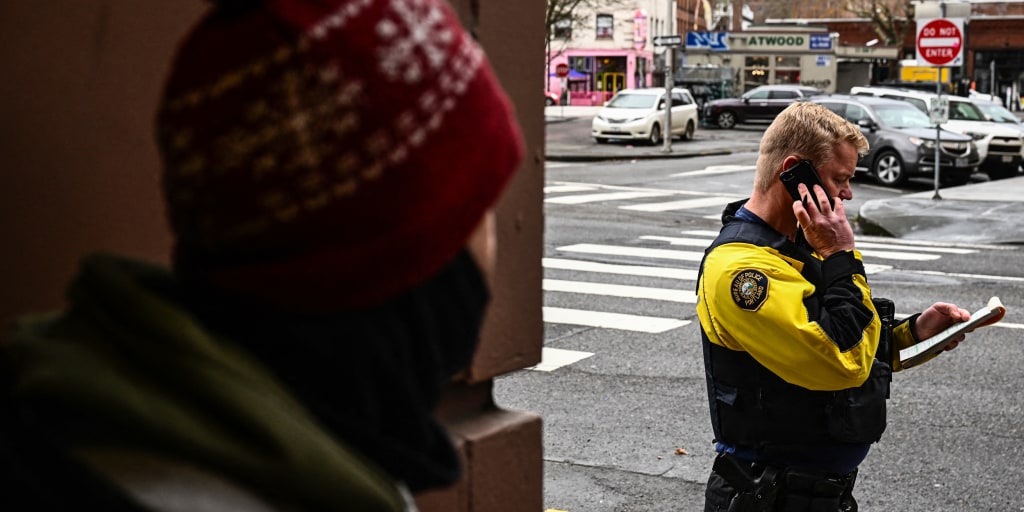Final month, legislators overwhelmingly handed Home Invoice 4002, undoing a key a part of a voter-approved initiative that decriminalized small quantities of medicine.
Opponents of the invoice, together with remedy service suppliers and public defenders, mentioned the brand new regulation marks a return to the failed struggle on medicine, which stuffed jails however did little to curb drug dependancy.
Oregon voters overwhelmingly handed the decriminalization measure, generally known as Measure 110, in 2020. It lowered penalties for possessing small quantities of onerous medicine and established a framework to assist individuals entry remedy companies.
“We have been too progressive,” mentioned Jovannis Velez, an outreach employee with Restoration Works Northwest, which operates remedy facilities all through Oregon. “Society wasn’t prepared for it.”
Advocates of the unique measure touted it as a possibility to assist individuals scuffling with dependancy get the assistance they want fairly than face jail time.
A whole lot of thousands and thousands of {dollars} of marijuana tax revenues have been meant to enter drug remedy and hurt discount applications. However that didn’t translate into an improved care community for a state with the second-highest charge of substance use dysfunction within the nation and ranked fiftieth for entry to remedy, in keeping with an audit report launched final 12 months.

Companies have been troublesome to entry and have been by no means absolutely applied, irritating lawmakers who opposed decriminalization from the beginning. Spikes in overdose deaths, largely pushed by fentanyl use, and a rise in homelessness created a political backlash.
Opponents of the decriminalization invoice argued that the pilot program had not achieved its supposed outcomes and had solely worsened open-air drug abuse.
“Combatting an issue by decriminalizing the issue is dangerous coverage,” Oregon Senate Republicans mentioned in a press release final month. “By no means once more.”
Democratic Senate Majority Chief Kate Lieber, of Portland, one of many invoice’s authors, mentioned its passage would “be the beginning of actual and transformative change for our justice system.”
“With this invoice, we’re doubling down on our dedication to verify Oregonians have entry to the remedy and care that they want,” she mentioned in a press release.

